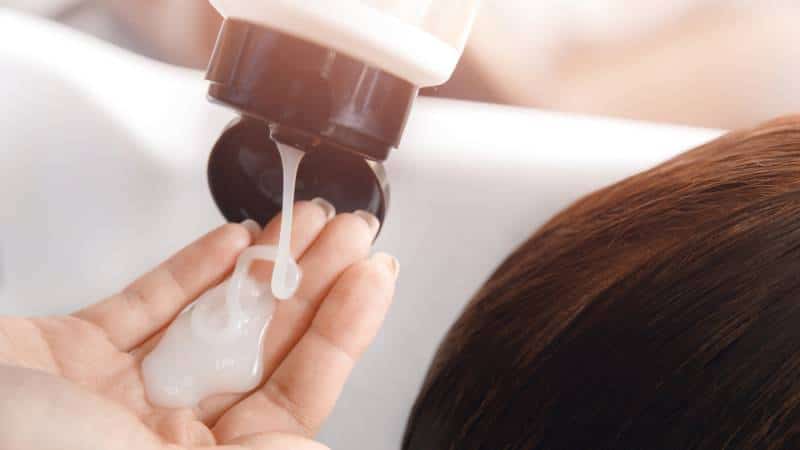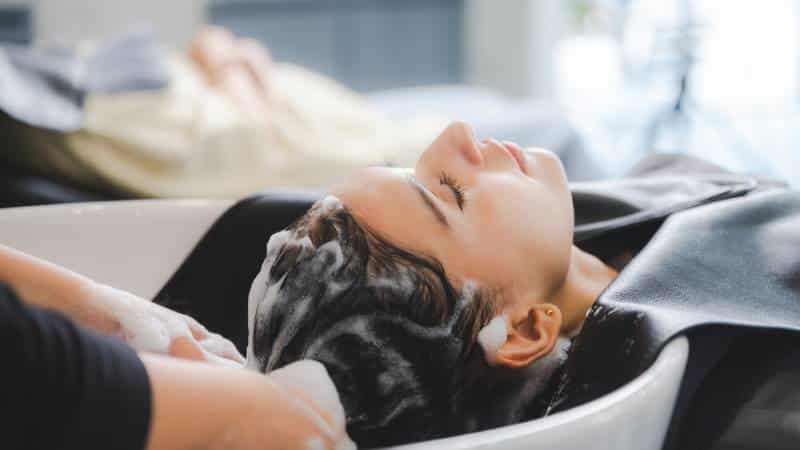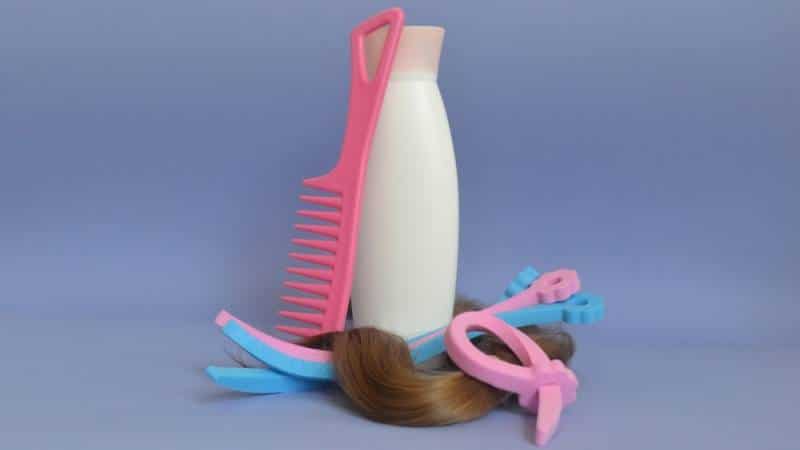Co-washing curly hair can be a great way to keep it healthy and free from build-up. However, there are a few things you need to know in order to do it correctly.
In this article, we will discuss the best way to co-wash curly hair, as well as how to avoid common mistakes. Let’s start with the basics:

What is Co-washing?
Co-washing, or conditioner washing, is a method of cleansing your hair with conditioner instead of shampoo. This can be beneficial for curly hair as it can help to preserve natural oils and moisture.
Why Should You Co-wash Your Curly Hair?
There are a few reasons why you might want to consider co-washing your curly hair. For one, curly hair is often drier than other hair types and can benefit from the extra moisture that conditioner provides.
Additionally, co-washing can help to prevent build-up on the scalp, which can lead to scalp irritation. Furthermore, co-washing can also help to detangle and define curls.
How to Co-wash Curly Hair?
When co-washing curly hair, start by wetting your hair in the shower. Next, apply a generous amount of conditioner to your scalp and massage it in.
Be sure to coat every part of your hair, including the roots and the ends. Once your hair is fully saturated, let the conditioner sit for a few minutes before rinsing it out.
As you rinse, be sure to use cool or lukewarm water. Hot water can strip natural oils from your hair, leaving it dry and brittle. When all of the conditioner is out of your hair, follow up with a leave-in conditioner or curl cream. This will help to add moisture and definition to your curls.
That is all there is to it! Co-washing curly hair is simple and only takes a few minutes. You can maintain the health and attractiveness of your curls by using these instructions.

How Often Should You Co-wash Your Curly Hair?
It’s generally recommended that you co-wash your curly hair every 1-2 weeks. However, this may vary depending on your individual hair type and needs.
The condition of your curly hair can greatly affect how often you should co-wash it. If your hair is dry, brittle, or damaged, you may want to co-wash more frequently.
On the other hand, if your hair is healthy and not overly oily, you may only need to co-wash once a week or so.
Things to Keep in Mind When Co-washing Your Curly Hair
There are a few things to keep in mind when co-washing curly hair. First, be sure to use a conditioner that is specifically designed for curly hair. These products will typically be more moisture-rich and less likely to cause build-up.
Secondly, use conditioner in moderation. A little will go a long way in cleansing your hair without making it feel greasy or heavy.
Finally, after co-washing, be sure to rinse your hair thoroughly. Conditioner can build up in your curls and make them appear greasy if you don’t wash it out properly.
If you’re not familiar with co-washing curly hair, now is the time to give it a go and see how it works for your locks! Try different products and fuss with frequencies until you find what gives your individual hair type the best results.
The Benefits and Risks of Co-washing Curly Hair
Co-washing curly hair has become a popular hair care method, especially among those with naturally curly hair. The main benefit of co-washing is that it can help to preserve the natural moisture in your hair, which can be beneficial for preventing damage and keeping your curls looking healthy.
However, there are also some risks associated with co-washing curly hair, so it is important to weigh the pros and cons before deciding if this method is right for you.

Benefits of Co-washing Curly Hair
1. Helps to Preserve Natural Moisture
One of the biggest benefits of co-washing curly hair is that it can help to preserve the natural moisture in your hair. This is because co-washing gently cleanses your hair without stripping away the natural oils that protect it.
As a result, your hair retains more of its natural moisture, which can help to keep your curls looking healthy and prevent damage.
2. Reduces Frizz
Another benefit of co-washing curly hair is that it can help to reduce frizz. This is because the natural oils in your hair will help to smooth down the curls and prevent them from becoming frizzy. Frizz can be a major problem for those with curly hair, so co-washing can be a great way to keep it under control.
3. Saves Time
Co-washing can also save you time in the hair care routine. This is because you won’t need to shampoo as often, which can cut down on the amount of time you spend in the shower.
In addition, co-washing can help to reduce the amount of time you spend styling your hair, as you won’t need to use as many products.

Risks of Co-washing Curly Hair
1. Can Cause Build-Up
One of the risks of co-washing curly hair is that it can cause build-up. This is because the natural oils in your hair can build up on your scalp and in your hair, which can eventually lead to scalp irritation and dandruff. In addition, the build-up can make your hair look greasy and can weigh it down.
2. May Not Remove All Products
Another risk of co-washing curly hair is that it may not remove all products from your hair. This is because the conditioner in co-wash can leave behind a residue, which can build up over time. In addition, some products, such as hairspray, may not be completely removed by co-washing.
3. Can Cause Dryness
Finally, one of the risks of co-washing curly hair is that it can cause dryness. This is because the natural oils in your hair can be stripped away, which can leave your curls feeling dry and brittle. In addition, co-washing can strip away the protective barrier that your hair has against heat and styling damage.

Who Should Avoid Co-washing Their Curly Hair?
If you have scalp conditions such as psoriasis, seborrheic dermatitis, or dandruff, you may want to avoid co-washing your hair. This is because the build-up from the conditioner can aggravate these conditions.
Co-washing may not be ideal for everyone. If you have dry or brittle hair, it can strip away the natural oils that protect your hair. On the other hand, if you have very oily hair, co-washing can cause a build-up of oil on your scalp.
Alternative Hair Care Methods for Curly Hair
If you decide that co-washing is not right for you, there are other hair care methods that you can use to care for your curly hair. For example, you can use a gentle shampoo and conditioner to cleanse your hair without stripping away its natural oils.
In addition, you can use a leave-in conditioner or oil to help moisturize your hair and prevent damage. Lastly, be sure to use a wide-toothed comb or brush to detangle your hair, and avoid using heat styling tools as much as possible to prevent damaging your curls.
Related: How to Stop Curly Hair From Falling Out?
The Bottom Line
Now you know how to co-wash curly hair, as well as the risks and benefits of this method. Co-washing can be a great way to preserve your natural moisture and reduce frizz, but it may not be right for everyone. If you have scalp conditions or dry, brittle hair, co-washing may not be right for you.
There are alternative hair care methods that you can use to care for your curly hair. Talk to your doctor or a dermatologist if you have any questions about co-washing or other hair care methods.
In our salon, we often recommend co-washing our clients with curly hair. This is because it can help to preserve the natural moisture in their hair and reduce frizz. If you have any questions about co-washing or other hair care methods, please feel free to ask one of our stylists during your next visit!


